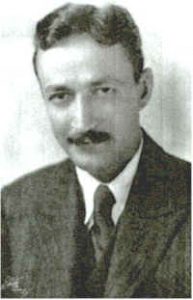 Jean Toomer (December 26, 1894 – March 30, 1967) was a poet, novelist and an important figure of the Harlem Renaissance.
Jean Toomer (December 26, 1894 – March 30, 1967) was a poet, novelist and an important figure of the Harlem Renaissance.
Born Nathan Pinchback Toomer in Washington, D.C., Jean was of mixed racial descent and spent his childhood attending both all-white and all-black segregated schools. In his early years Toomer resisted racial classifications and wished to be identified only as an American. Toomer attended several colleges for short stints but did not take a degree. The readings that he would undertake and the lectures he attended during his college years shaped the direction his writing would take. After leaving college, Toomer published some short stories, devoted several months to the study of Eastern philosophies and took a job as a principal in Sparta, Georgia. The segregation Toomer experienced in the South lead Toomer to identify more strongly as an African-American. In 1923, Toomer published the experimental novel Cane, his most famous work. A series of poems and short stories about the Black experience in America, Cane was hailed by critics and is seen as an important work of both the Harlem Renaissance and the Lost Generation. In 1926 Toomer went to France to attend the Gurdjieff Institute and was associated with G. I. Gurdjieff until 1935. Toomer was prolific during this period, writing plays, the novel The Gallonwerps and several poems and short stories that appeared in The Dial.
Toomer found it harder and harder to get published throughout the 1930s and in 1940 moved with his second wife to Doylestown, Pennsylvania where he joined the Society of Friends and began to withdraw from society. Toomer wrote a small amount of fiction and published essays in Quaker publications during this time, but devoted most of his time to serving on Quaker committees. Toomer stopped writing literary works after 1950. He died in 1967 after several years of poor health.

